A Functional Behavioral Assessment (FBA) is a systematic process of identifying behaviors that interfere with a child’s learning and planning critical interventions to assist the child in achieving effective, pertinent, and age-appropriate social and academic results.
The main focus of the FBA is identifying and understanding challenging behaviors, which helps teachers and parents understand why a child exhibits certain behaviors, the antecedents (triggers) that initiate the behavior, and what consequences (reinforcers) support the behaviors. After determining the reasons for a child’s behavior, teachers can modify their instructions to adjust to the child’s needs.
Functional Behavioral Assessment Templates
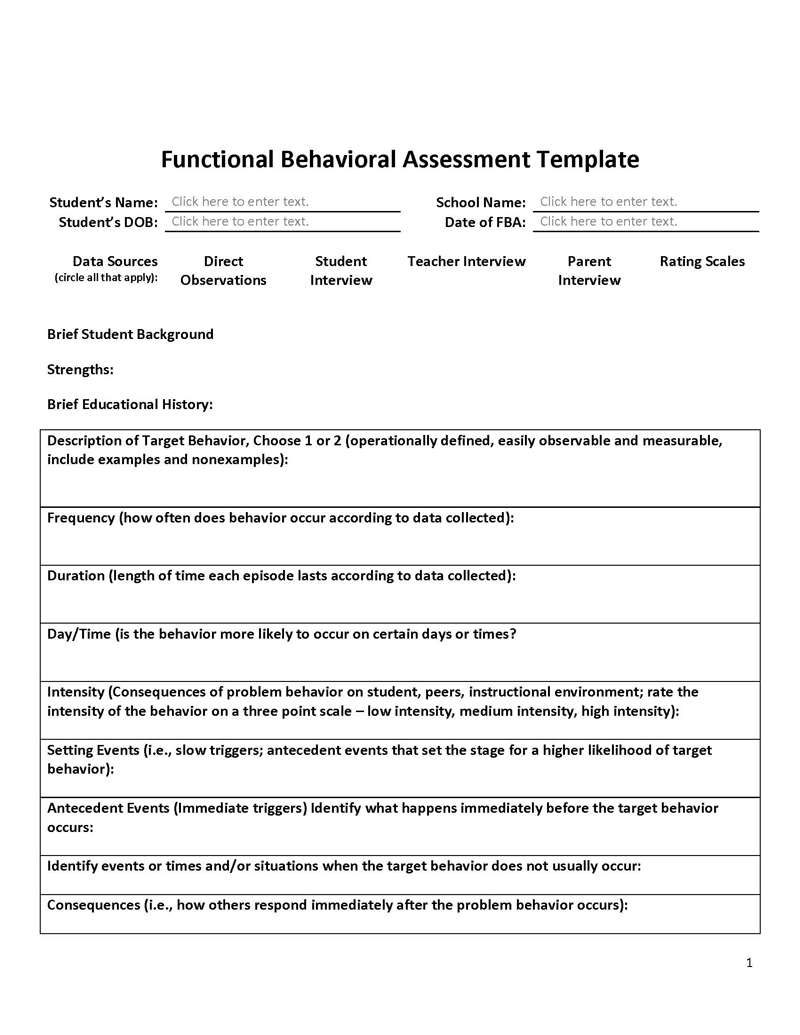
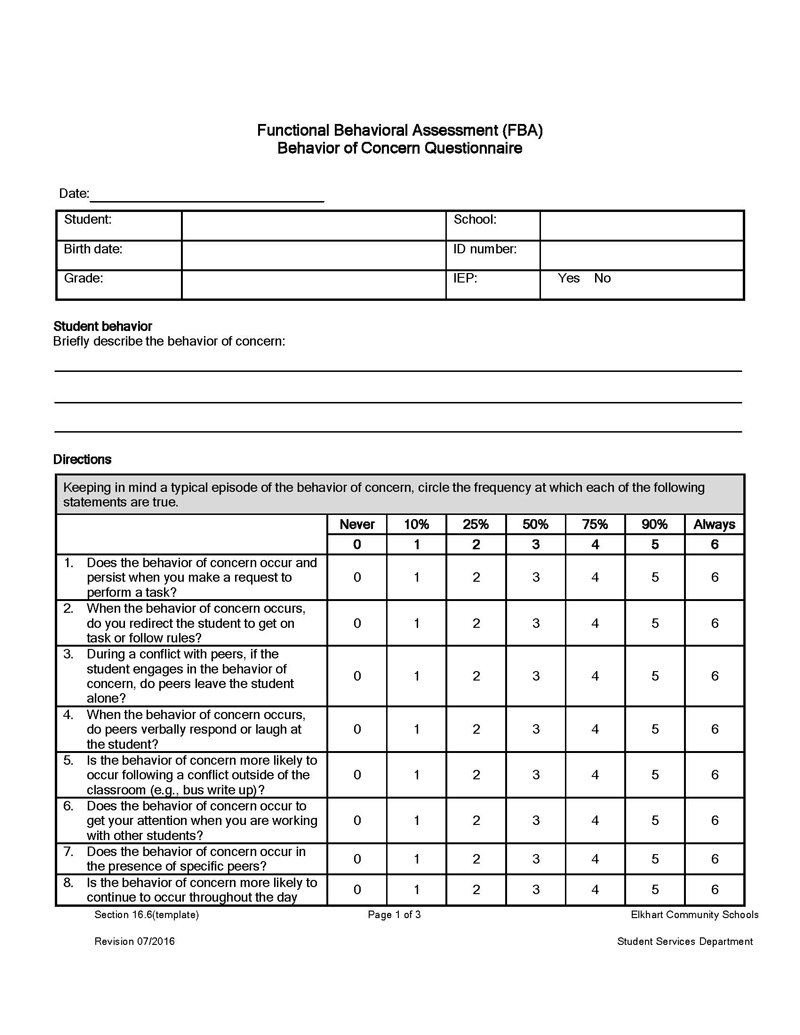
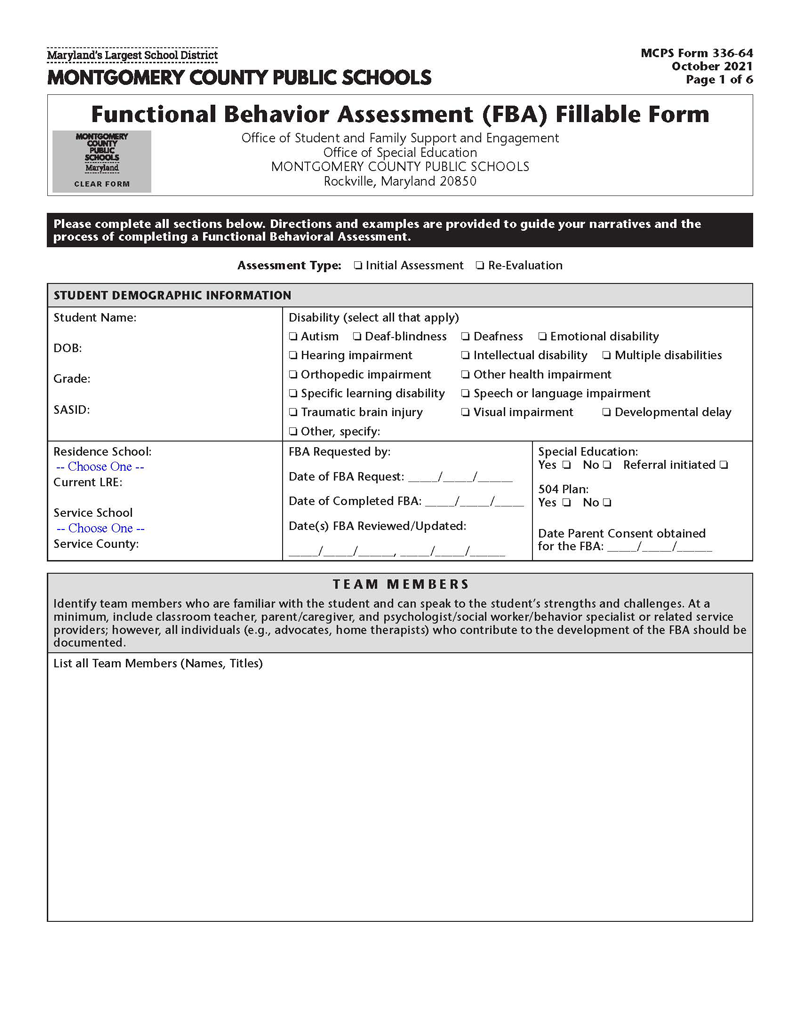
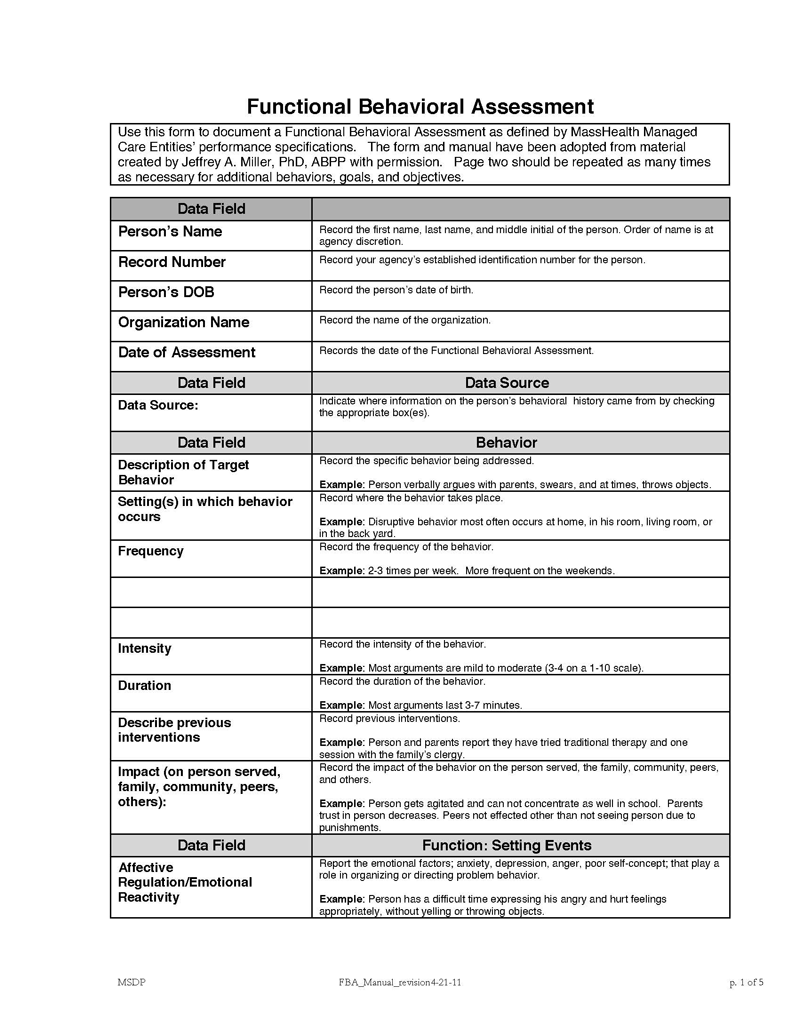
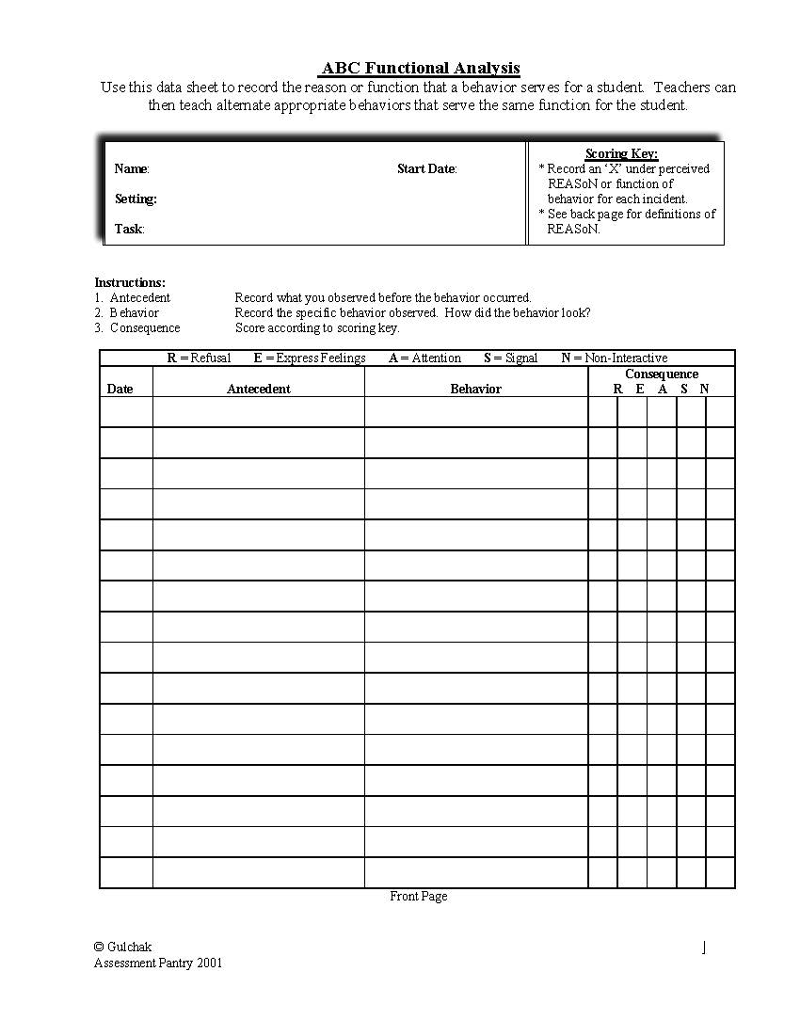
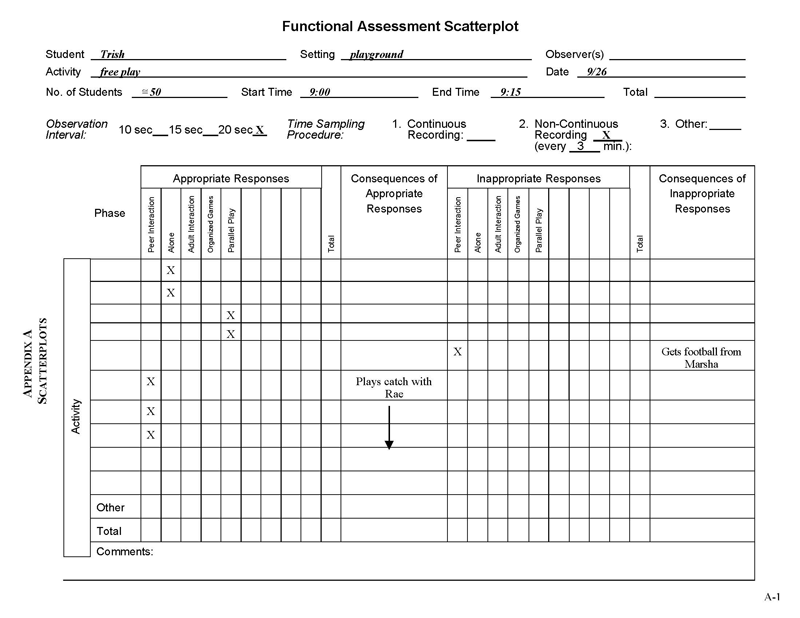
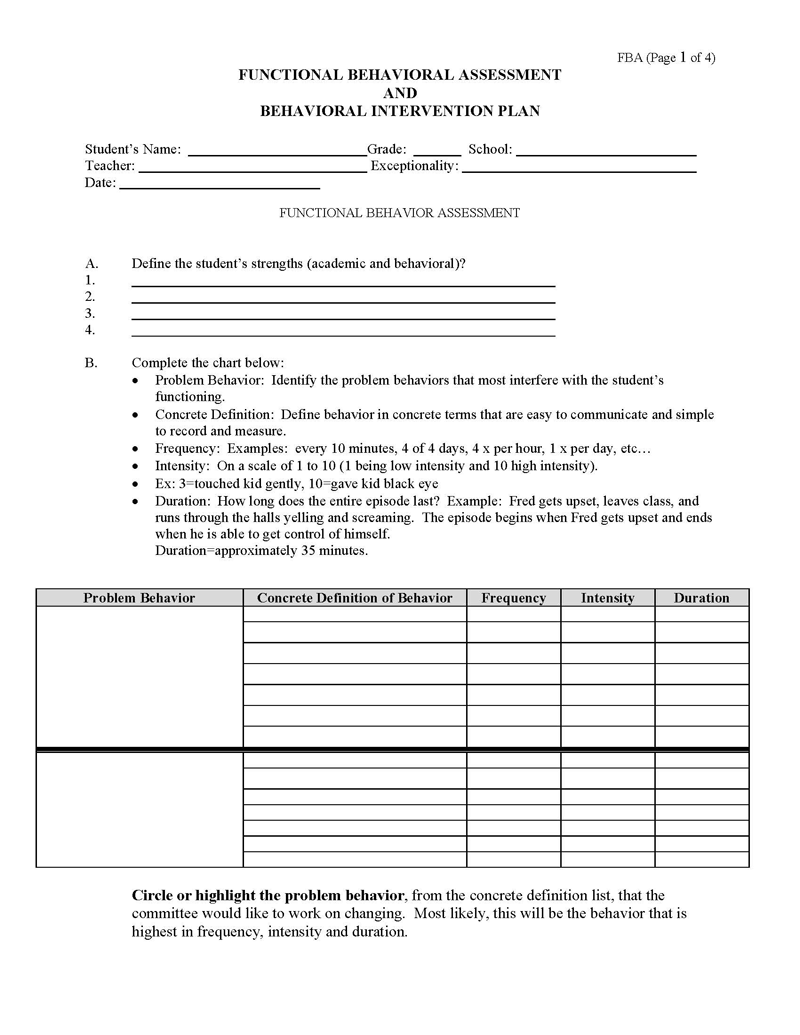
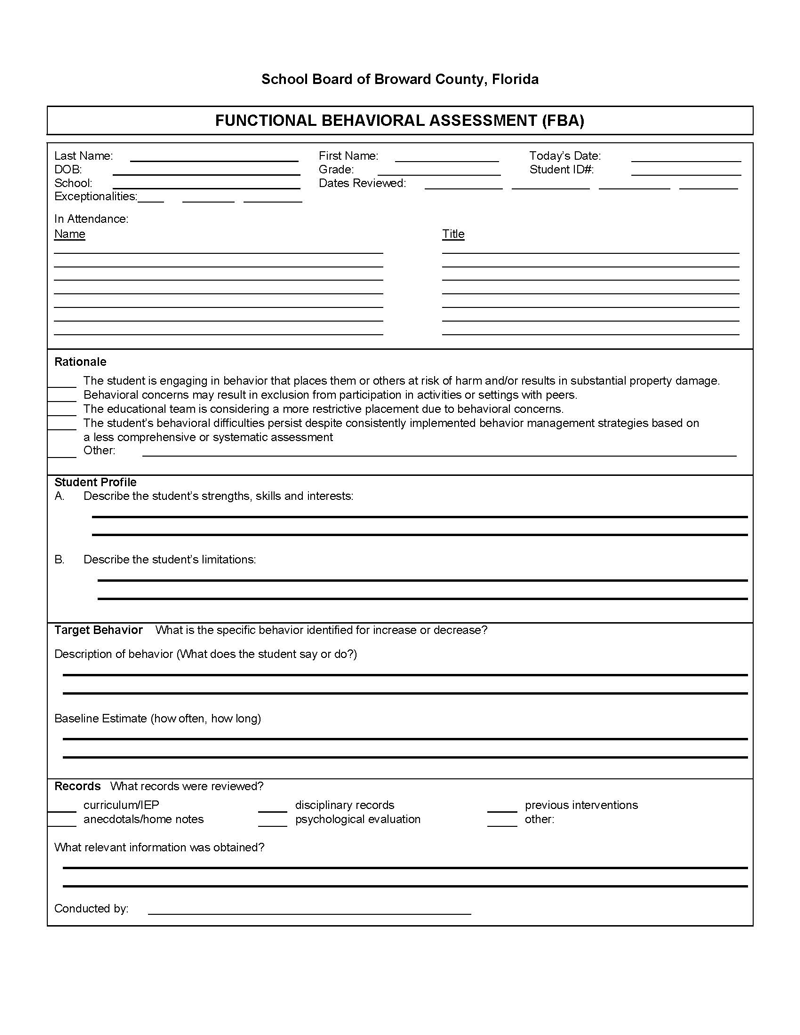
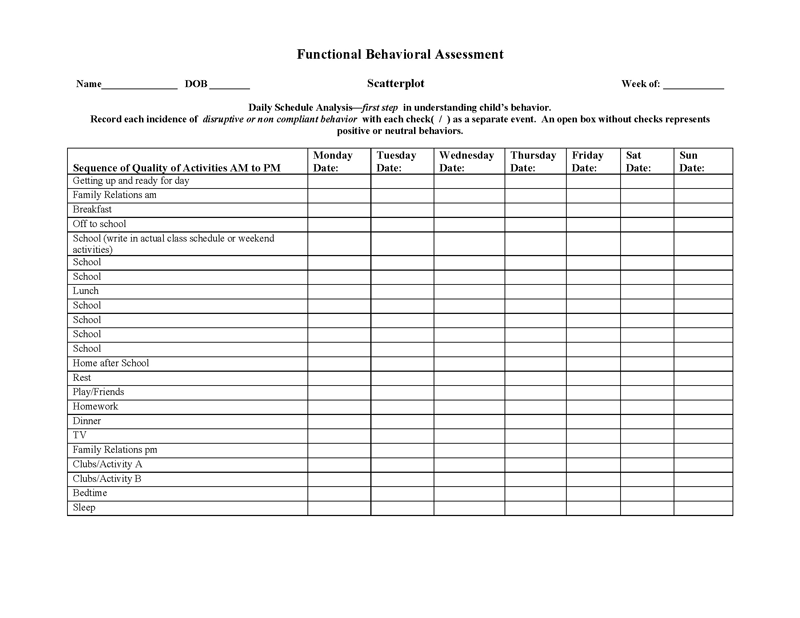
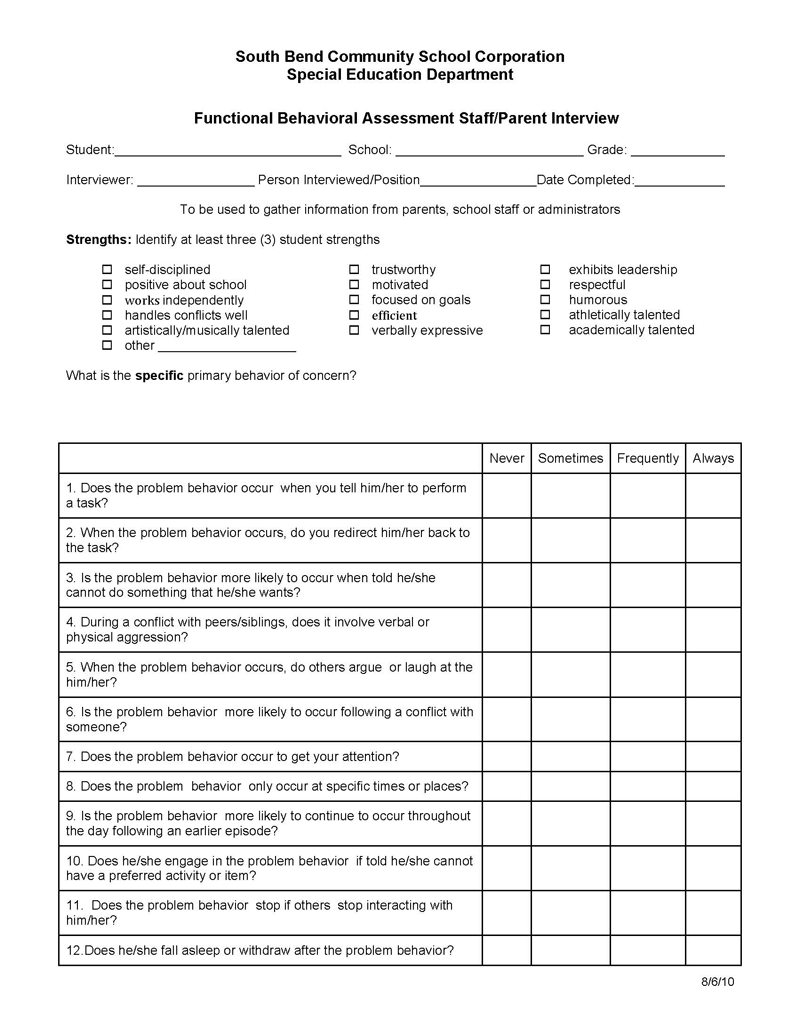
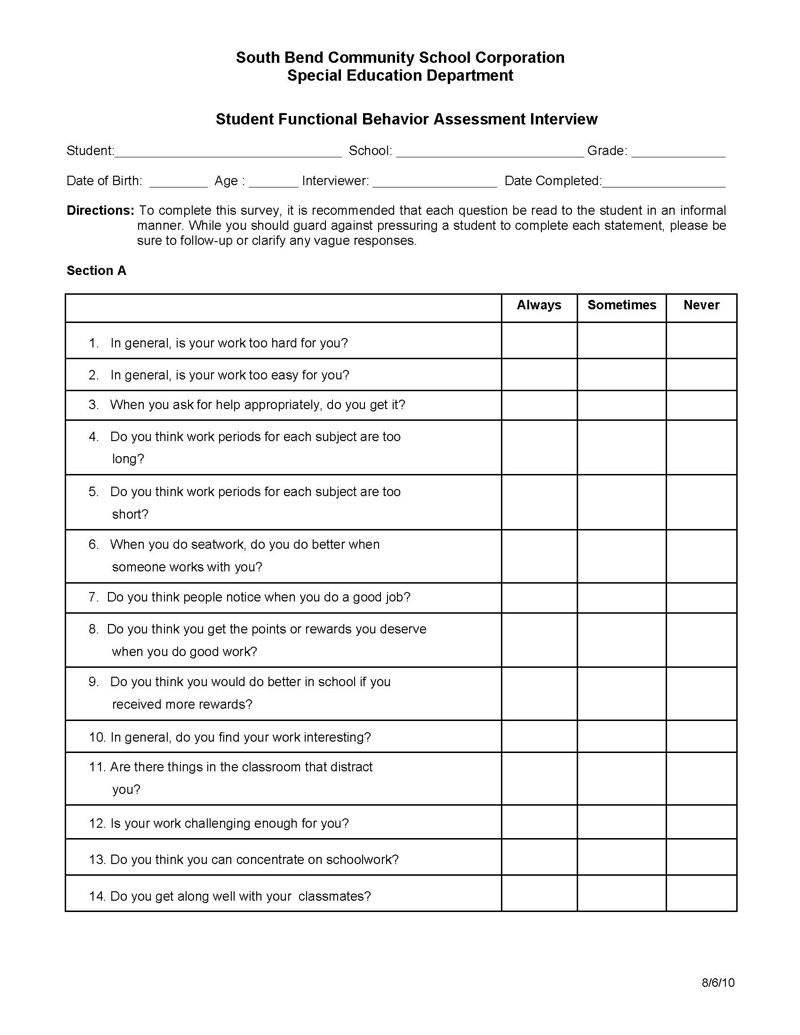
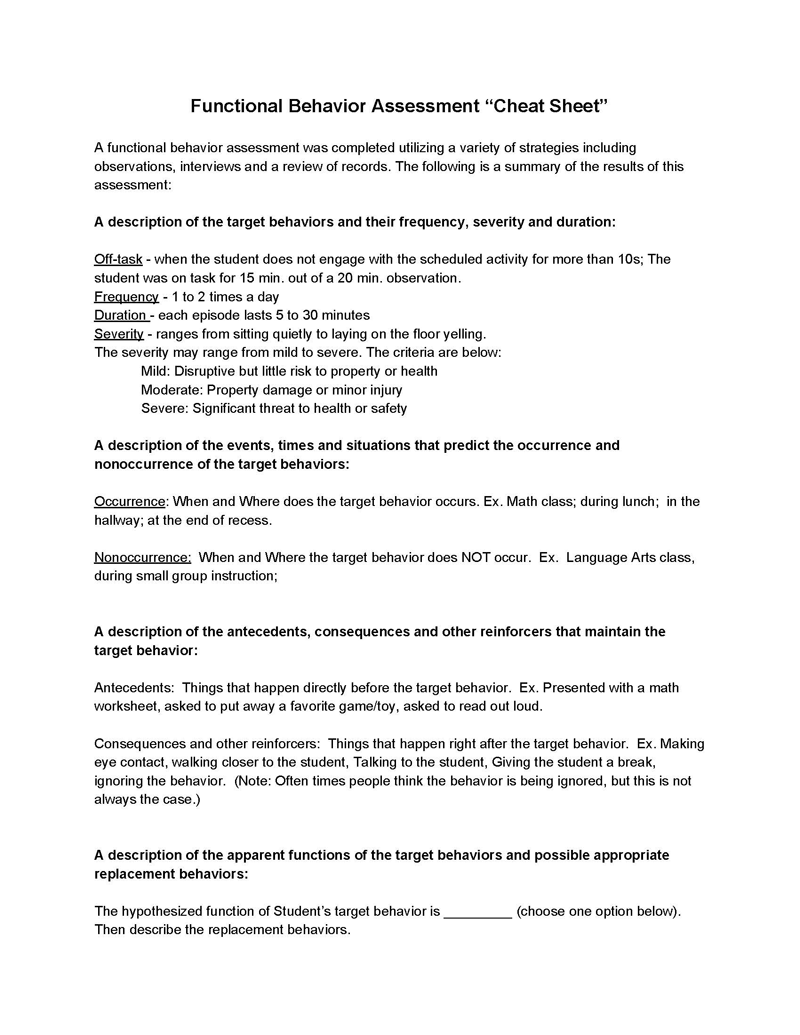
How is FBA Used in Education?
Behavior analysts certified by The Behavior Analyst Certification Board, Inc.® (BACB®) or school psychologists conduct FBAs due to their research expertise and use of scientific principles to determine behavioral interventions. A psychologist can assist teachers, school counselors, or parents in conducting FBAs if a school does not have access to these resources.
Teachers conduct this assessment with the help of psychologists and parents to identify negative behaviors in a child and teach effective behavior alternatives. First, the teacher or psychologist will determine what behavior needs to change. Next, they will look at what happens right before the behavior occurs.
In the end, they will verify if there are specific things that trigger this behavior. With this information, they can then plan to teach the child appropriate ways of dealing with these triggers.
When is FBA Needed?
It is essential to note that not all students, whether they have a behavior challenge or not, will get such an assessment. FBAs are usually conducted to assess students with severe behavioral issues that could affect their lives or those of their classmates.
There are three situations that warrant schools conducting a functional behavioral assessment. They include:
- It can be conducted on a student as part of the school evaluation for special education. The evaluation will assess all aspects of the student’s learning. If their behavior is deemed to affect their learning or that of their classmates, then the FBA will be conducted.
- For students with an IEP (Individualized Educational Plan) or a 504 plan, the school should conduct an FBA if there is any behavior change in the student. If the school does not do this, the student will not be able to get a free and appropriate public education.
- In other school disciplinary situations, such as a suspension or expulsion from school, federal law requires the school to conduct an FBA. However, the rules for conducting it in these situations are usually complex. For instance, if the student’s behavior is directly caused by their disability, then an FBA is required. It is also necessary when students are involved in drug use, weapons, or serious injury.
note
For students who do not have a 504 plan or an IEP, the law does not require conducting FBA on them, and, thus, they may not perform it, as it is optional.
Steps of Functional Behavioral Assessment
Conducting an FBA is a systematic process for analyzing behaviors, their functions, and the associated reinforcers.
The process should follow the following steps to achieve a practical, functional behavior assessment:
Step 1: Identify and define the challenging behavior
The first step in a FBA is identifying and defining the challenging behavior. The assessment should be specified in an action-oriented and clear manner so everyone can understand the problem. It should describe the identified behavior by using objective terms and a specific example of the occurrence.
EXAMPLE
Instead of writing;
John is stubborn, abusive, and does not want to participate in class actions.
The suitable exemplification of an identifiable behavior could be,
John does not listen to the teacher when she asks a question, and he ignores her by looking at his book. He also shouts and says inappropriate words within earshot of the other students, picks fights with his classmates and does not properly sit in his seat.
Step 2: Gather and analyze the information
Teachers, psychologists, or parents gather and analyze useful information about the identified behavior in this step. The information gathered should be objective and include multiple sources for the data, such as observations (observations may indicate a child does not have a behavior problem but may have underlying social-emotional issues), documentation (documents from school, parents, and teachers), and interviews with the child.
Some questions that the process of FBA should seek to answer include the following:
- What has the child’s behavior been like over time? Has it changed recently? Is it getting better or worse?
- What specific things trigger the behavior (or, in some cases, what is reinforcing it)?
- When and where is this behavior occurring (e.g., classroom, playground, outside of school, home)?
- Where is this behavior not occurring?
- Does the behavior happen more on certain days of the week or at certain times of the day?
- Does anything (e.g., food, family, friends, punishment) reinforce the behavior or decrease it?
- Does the child like or dislike what happens immediately before and after the behavior?
- What successful strategies does the child use to escape or avoid the problem?
Step 3: Find out the cause of the behavior
The third step of this process is to specify the causes of the specific behavior. It is essential to identify and define the specific times and places where the behavior manifests.
EXAMPLE
If a teacher observes that a student is displaying inappropriate behavior in class, the hypothesis could be:
John does not want to participate in class because he does not like his teacher and his classmates.
The information gathered in the preceding step should serve as the foundation for the conclusion about the behavior, and the third step should outline the purpose of the behavior.
Step 4: Provide strategies and recommendation actions
After a thorough analysis of the collected data and the tested hypothesis, the next step is to provide clear strategies for minimizing or eliminating the behavior. The most effective approach to this step is to define how teachers can help students with behavior problems. Additional recommendations, such as formulating a Positive Behavior Support Plan or a Behavioral Intervention Plan may be made depending on the assessment, e.g., if medical issues are being addressed or if it appears a student has some other condition requiring treatment.
What Happens After FBA?
After completing the FBA, teachers should discuss the recommendations with parents and outline a behavior improvement plan.
As a parent, it is essential that you review the results to make sure that they are objective, action-oriented, and measurable and provide an explanation of certain conclusions. You must ask for clear and concise explanations if the findings contain opinion-like statements, subjective conclusions, or inconclusive or non-objective findings.
After discussing the findings of the FBA, the person who conducted it should provide recommendations, including a Positive Behavioral Support Plan or a Behavior Intervention Plan. Both the parent and the teacher should agree on the plan, and it should contain measurable objectives so that both parties can monitor progress towards the child’s improvement.
The functional behavioral assessment should be included/updated in the child’s individualized Education Plan (IEP) so that every teacher and support staff are trained on the data and recommendations gathered during the assessment.
Frequently Asked Questions
The Individualized Education Plan team collects data for an FBA, but a psychologist, special education teacher, or school-based behavioral interventionist can also collect it.
The information gathered during the FBA process should be used to develop a plan for improving behavior. The plan should be specific and measurable to allow the IEP team to monitor and track progress. The parents should also be informed that their child’s IEP is being updated with new information, one of which would be their Child Behavior Profile (CBP).




